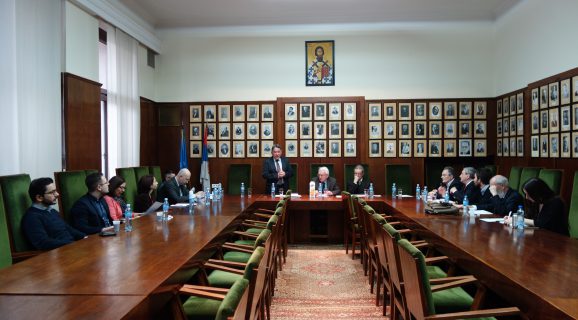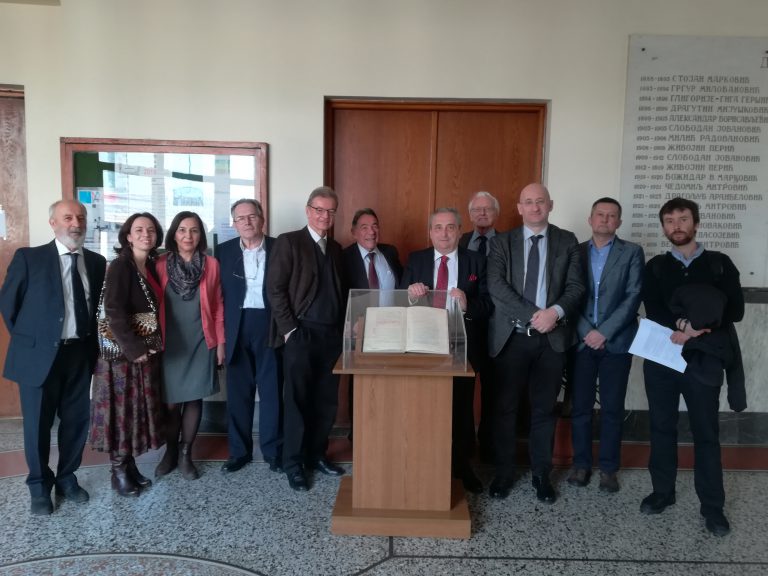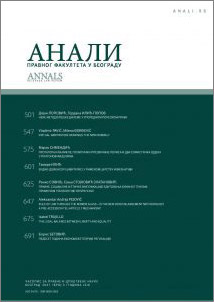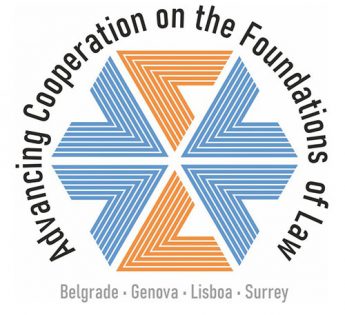
International Conference: Legal Pluralism in the 19th and 20th Century
On Friday, the first day of the conference, a visit to the Archives of Serbia was organised. After meeting the director of the Archives, Dr. Miroslav Perišić, and a discussion about the history of this institution, the participants of the conference had a chance to see an exclusive selection of documents kept in the Archives: several interesting acts from the period of Ottoman rule, the originals of all the Constitutions of the Principality and the Kingdom of Serbia, as well as two acts that had started the First World War – the ultimatum of Austro-Hungary and the telegram with which it had declared war on Serbia.
On Friday evening, Prof. Stolleis held a lecture in the club “Forvm Romanvm”, entitled “Constitution as a Product of Western Legal and Political Culture”. In the lecture he presented a masterful synthesis of the concept of constitution in legal thought and practice, from early conceptions on state organisation, over medieval basic laws (leges fundamentales), to the constitution as a formal act brought about by the modern age, containing regulations regarding state organisation and human rights. Prof. Stolleis also touched the question of the future of constitutions in an age when, as he believes, the time of nation-states is slowly passing. He finished his lecture with a thought about how judges of constitutional courts have today taken over the role of priests and prophets that used to provide answers in the name of the gods.
sdr
The working part of the conference, relying upon past research, but also directed towards new findings, was held on Saturday. The primary inspiration for organizing this conference was the second volume of the series “Konflikt und Koexistenz: Die Rechtsordnungen Südosteuropas im 19. und 20. Jahrhundert” (Conflict and Coexistence: The Legal Orders of South-East Europe in the 19th and 20th Century), published by the Max Planck Institute for European Legal History in Frankfurt, which primarily concerns Serbia (and besides it also Bosnia and Albania), on writing which many of the conference participants had cooperated. Some of them have focused on the research that they had conducted during that project on this conference. On the other hand, this initiative of the Max Planck Institute had also had its followers inspirit at the University in Belgrade Faculty of Law, so some attention was also devoted to the collection of papers published on the occasion of the 170th anniversary of the Serbian Civil Code of 1844, which was partially inspired by the research conducted at the Max Planck Institute in Frankfurt. Finally, many authors have presented the results of their new research related to the significant subject of legal pluralism in the legal history of the Modern Age. The conference was also attended by a small, yet select audience of our teachers and students, and thus every contribution was vividly discussed both during the working part and later, in a more relaxed atmosphere after the conference was concluded.





